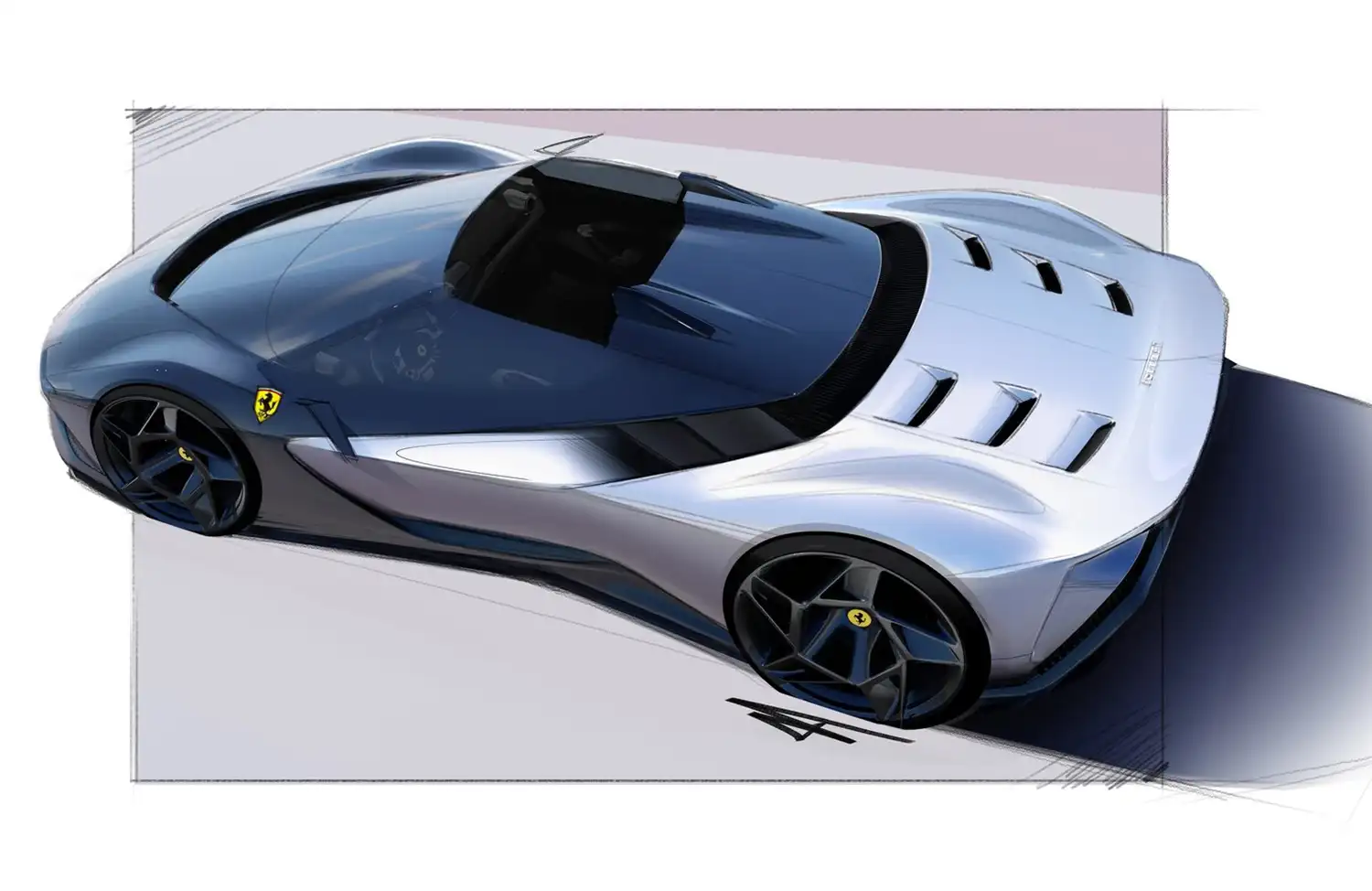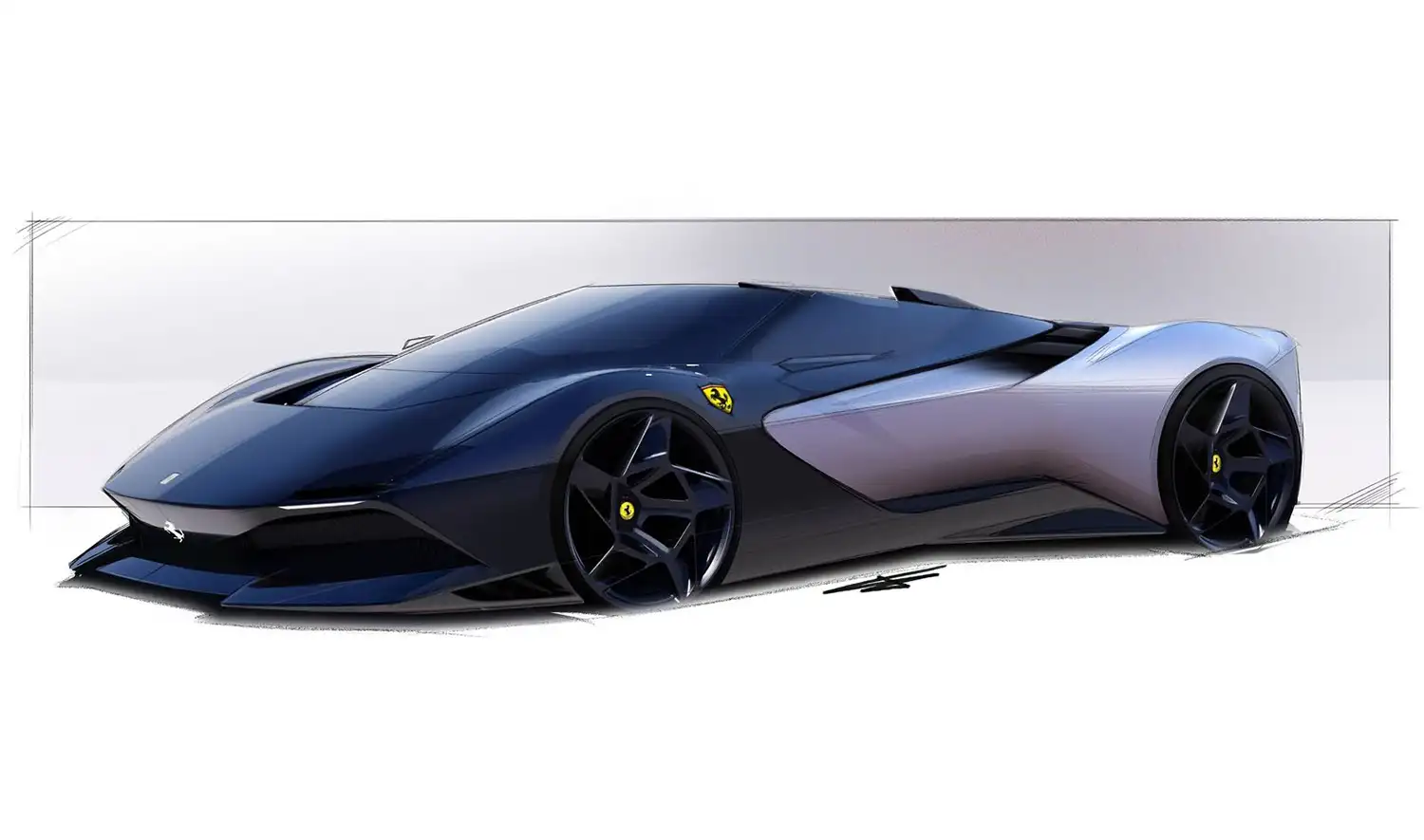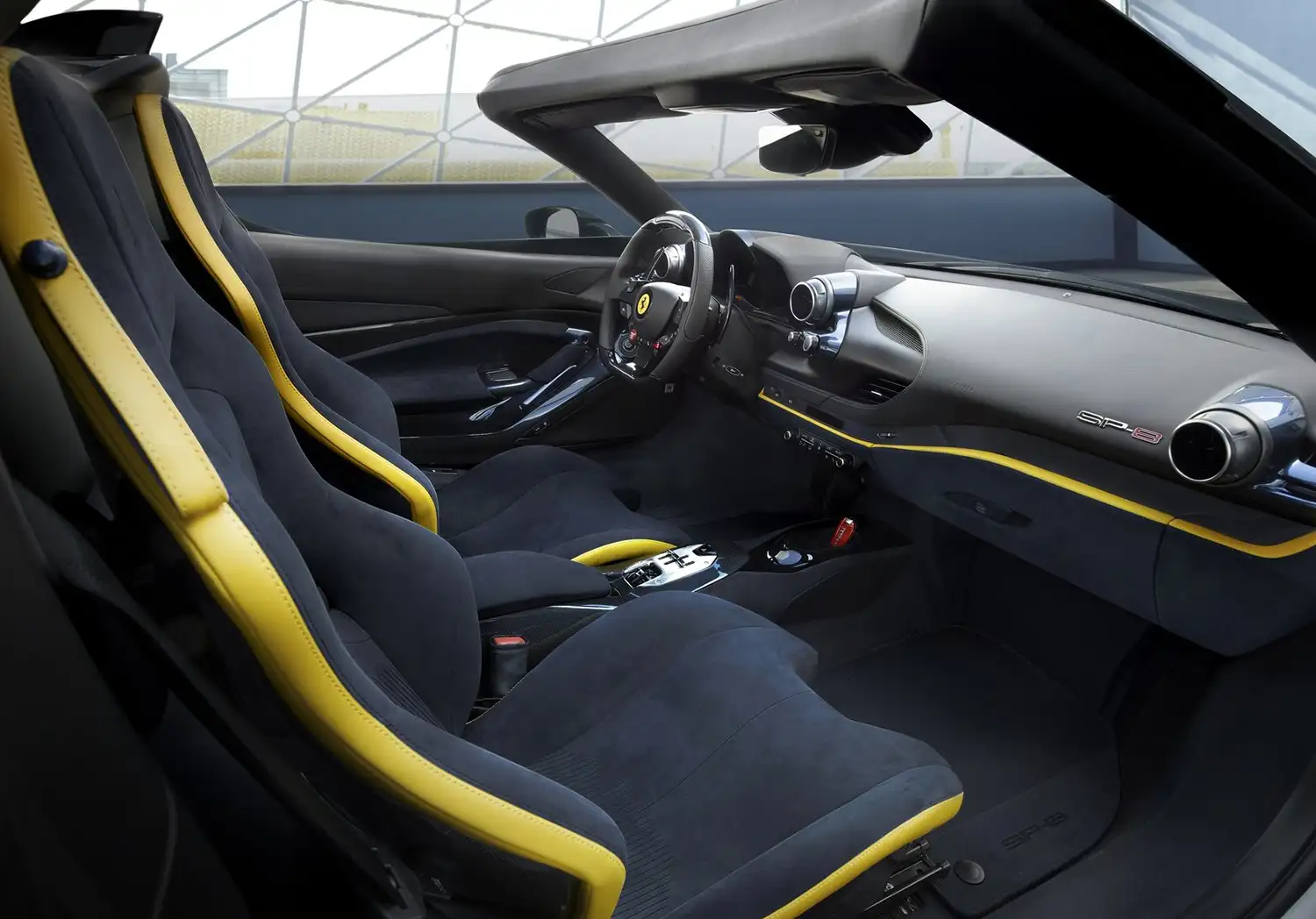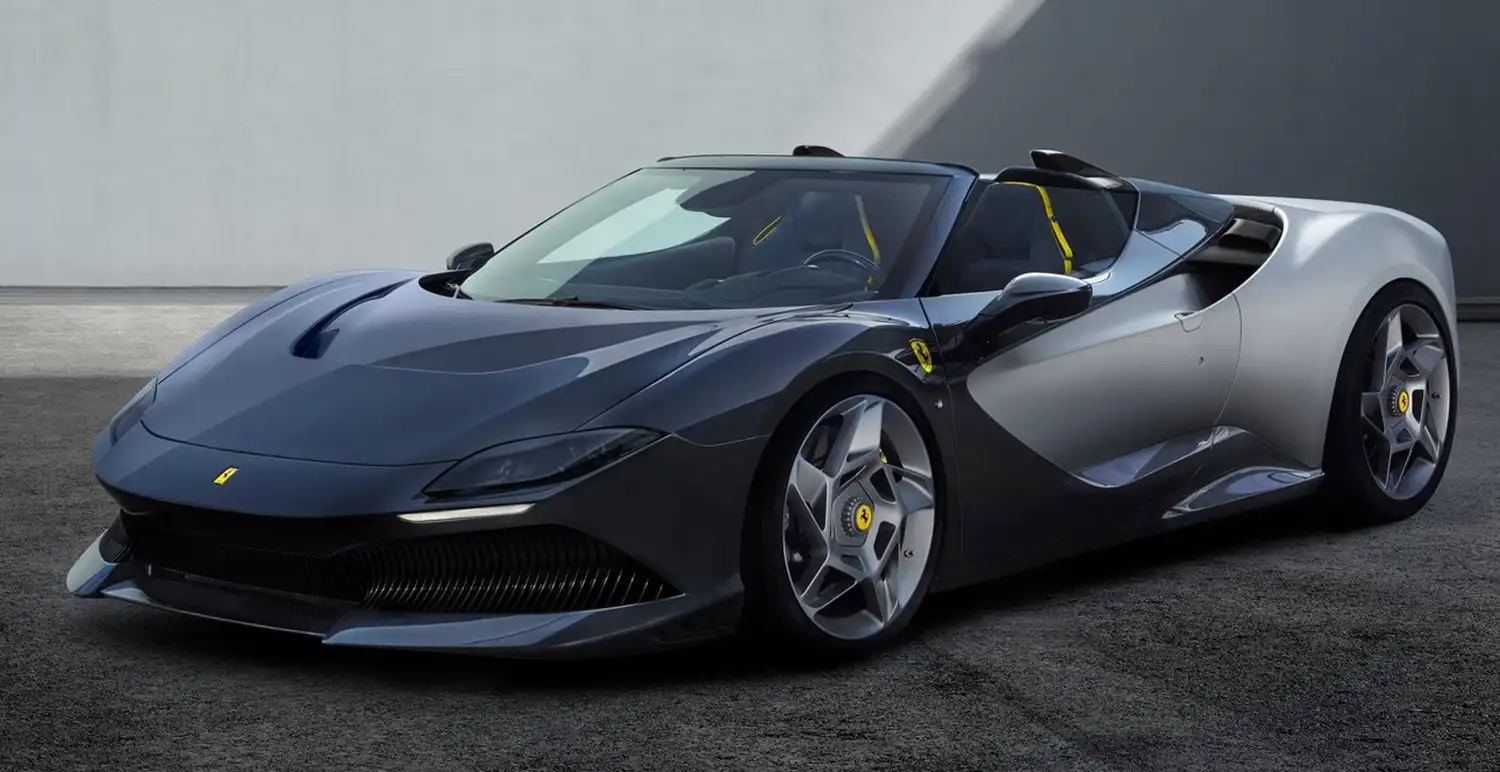
Ferrari unveiled the latest addition to its One-Off series, the Ferrari SP-8. Part of the marque’s Special Projects programme and designed by the Flavio Manzoni-headed Ferrari Styling Centre, it is a mid-rear-engined V8 based on the F8 Spider from which it inherits its layout, chassis and engine. The SP-8 one-off joins the hallowed ranks of the most exclusive segment in the Ferrari range, unique cars crafted around individual clients’ specifications, with the result that they embody the very pinnacle of Prancing Horse customisation.
The car’s name celebrates its 3.9-litre V8 twin-turbo engine, one of the most critically-acclaimed power units in history and the winner of the prestigious Engine of the Year (IEOTY) award on four consecutive occasions. As the client that commissioned the SP-8 hails from Taiwan, the number 8 is also significant as it considered extremely lucky in Chinese culture, traditionally auguring success, good fortune and personal achievement.
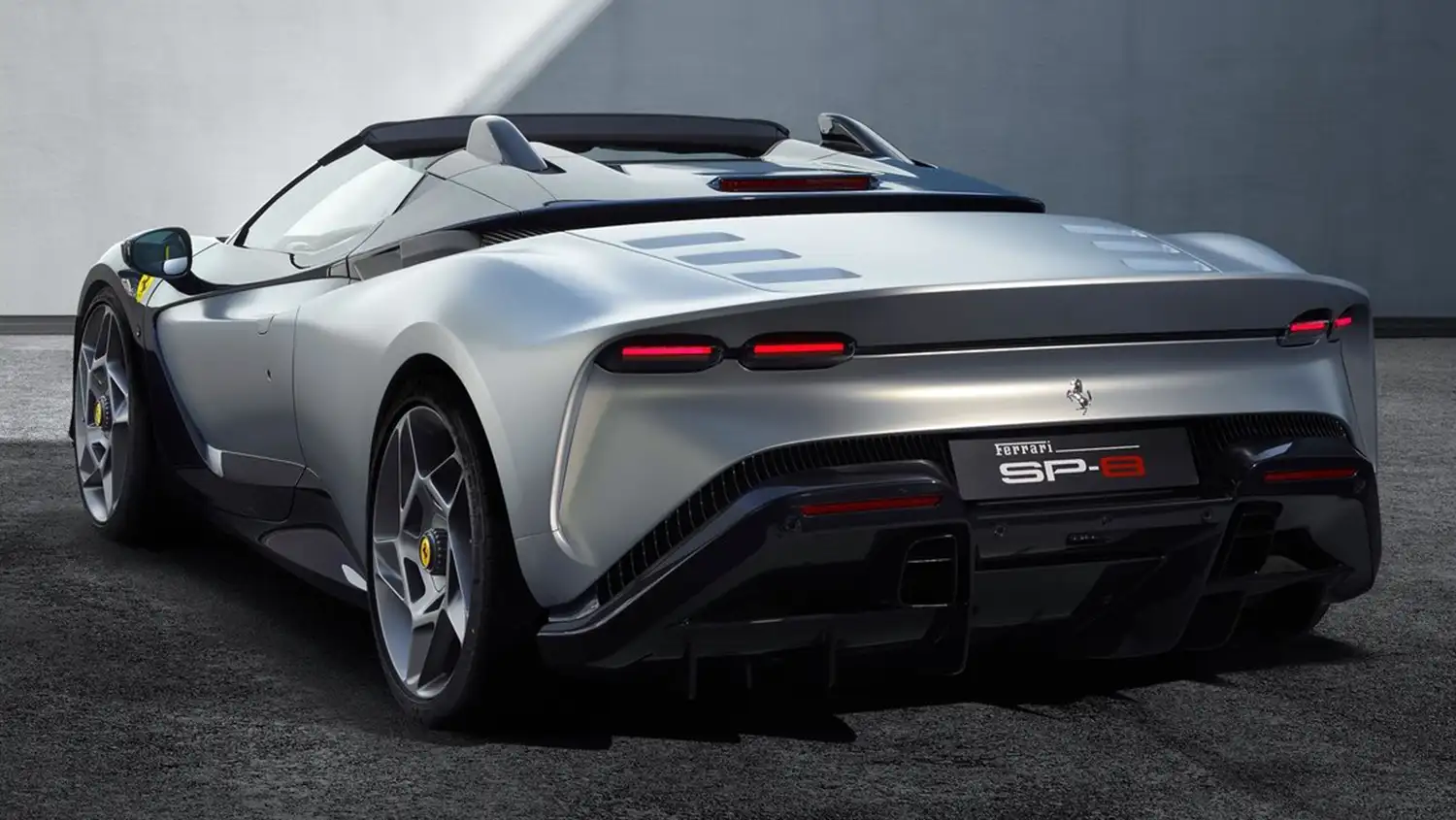
The Ferrari SP-8’s most unique feature is the fact that it has no roof, making it a thoroughbred two-seater roadster in every respect, underscoring its sporty character and the instantly exhilarating visual and en plein air driving experience it delivers. This solution demanded extensive refining of its aerodynamics through a combination of CFD simulations, wind tunnel testing and track testing to guarantee a standard of acoustic comfort and wind feeling comparable to the car that inspired it.
The car’s main styling theme centres around the way in which its volumes crossover and fuse into one another: the unpainted carbon-fibre front wraps around to the tail, creating a two-tone effect that creates a powerful contrast in terms of both colour and materials. The elimination of the retractable hard top allowed the designers to radically restyle the entire tail section, giving it a full volume with a taut belt line. The car’s volume is divided into two parts which are connected by a functional central area in matte black that includes the side air intakes with separate ducts for the intercoolers and engine. The upper section of this band incorporates a vent for the engine compartment with longitudinal elements that reference the lateral strakes typical of Ferraris of the past.
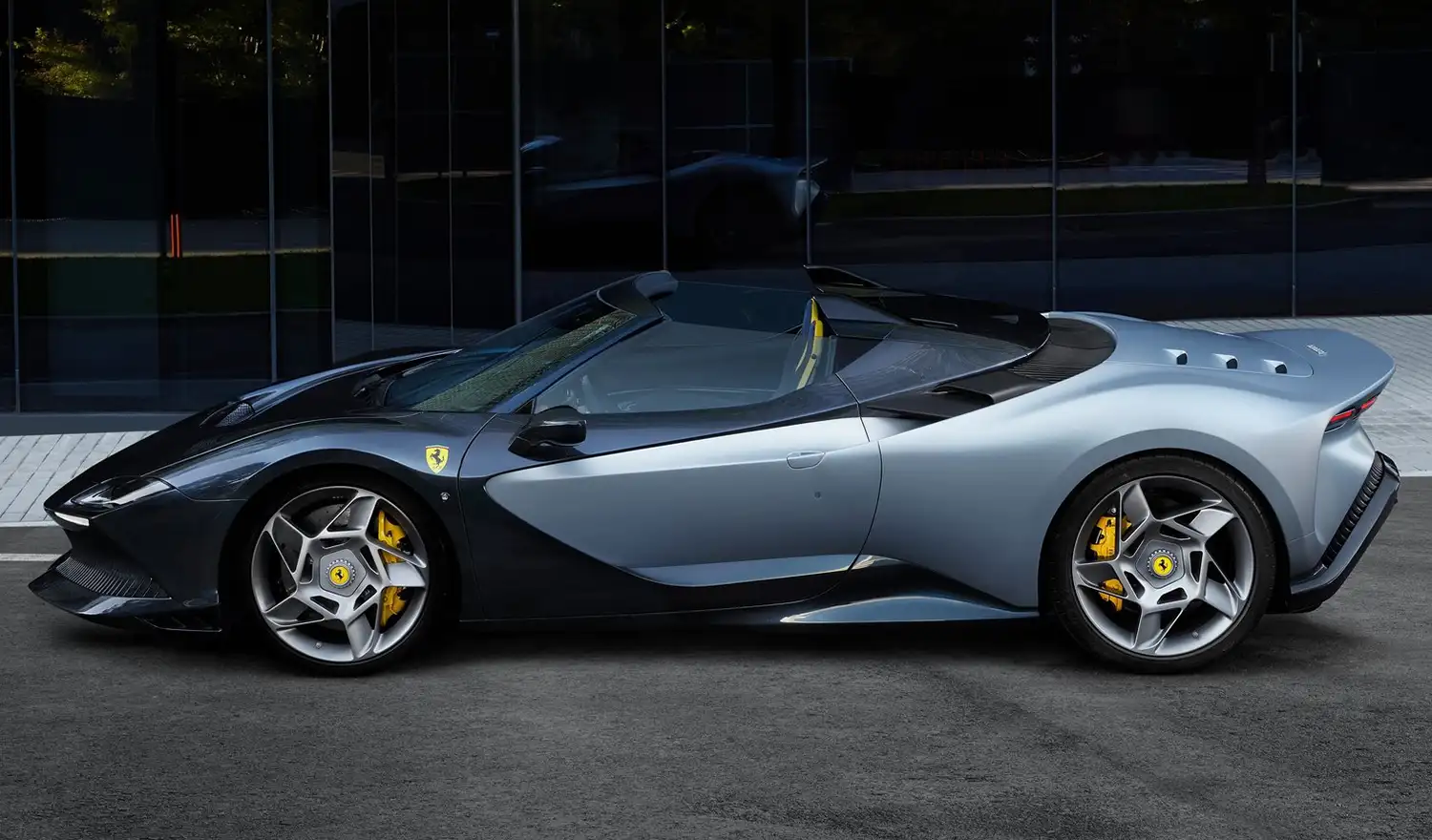
Dominating the front of the car is an imposing full-width, cast aluminium grille made from a single, 3D-printed mould. The grille features the same strake theme, this time in a vertical movement, with the spacing in plan view gradually widening towards the flanks to better channel air flow to the two front radiators. The angling of these elements was optimised by the close collaboration between the Ferrari Styling Centre and the aerodynamics team that spent months honing the car using CFD.
Other areas of the Ferrari SP-8 that were redesigned from the donor car include the headlights, which have special masks and lenses, the rear lights derived from those of the Roma with specific lenses, the windscreen, the tailpipes, which were given the same treatment as the 296 GTB’s, and the specially-designed wheel rims in a dedicated colour (matte Grigio NART).
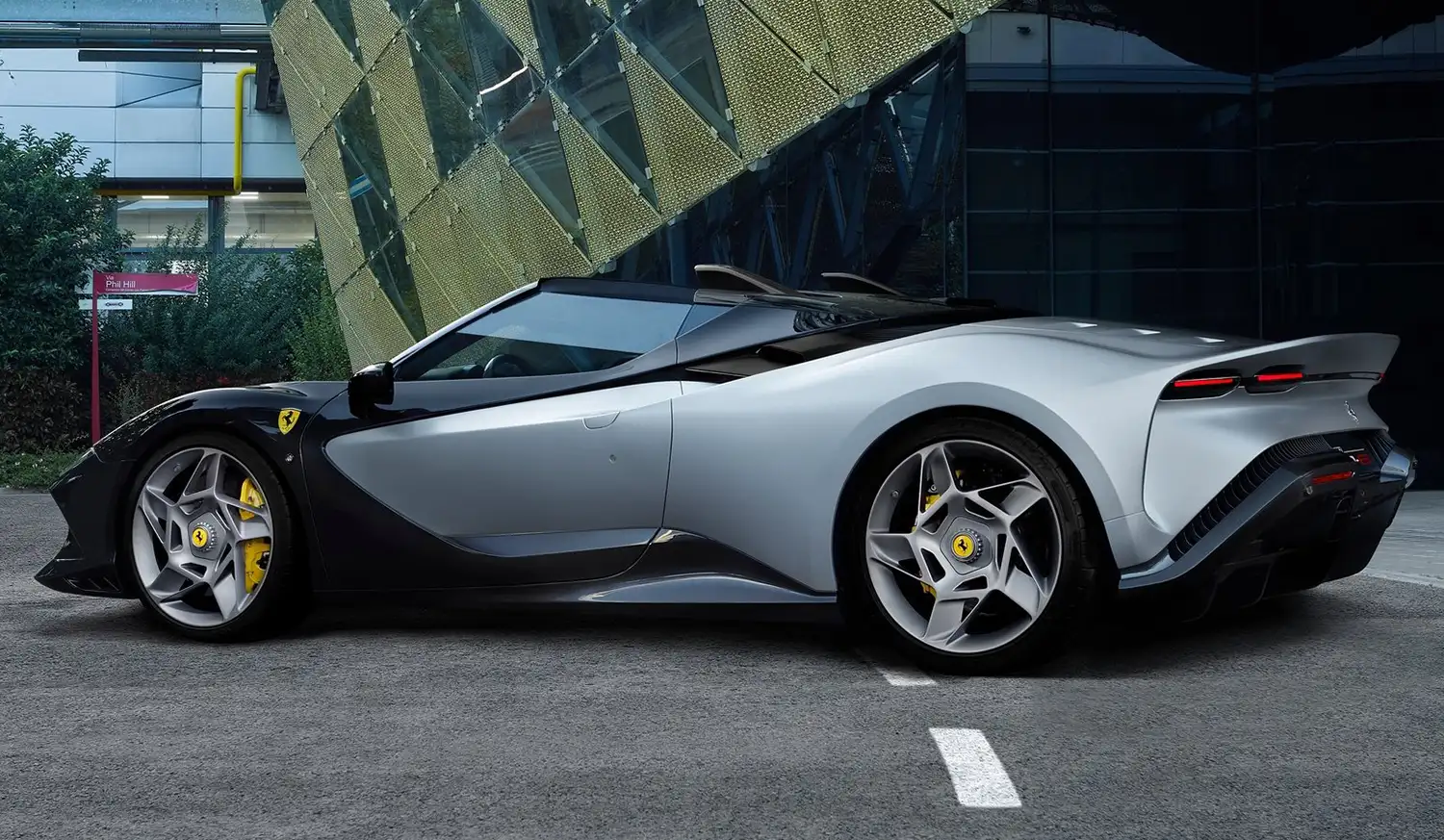
These directional five-spoke wheels are exclusive to this particular car and offer a modern take on the classic rims used on Ferrari Sports Prototypes as well as the legendary F40. A clever and inextricable part of their overall aesthetic are their heavily sculpted sections and large apertures designed to make them lighter.
Inside the car, an important modification has been made to the central console to house the F1 gearbox commands that have featured in the Ferrari range since the debut of the SF90 Stradale. This meant modifying the now iconic shift-gate for this specific application. The interior finish is completed with seats featuring details in laser-etched Navy Blue Alcantara® coupled with gradient effect cloth, and carpets in specific twill fabric with an iridescent effect.
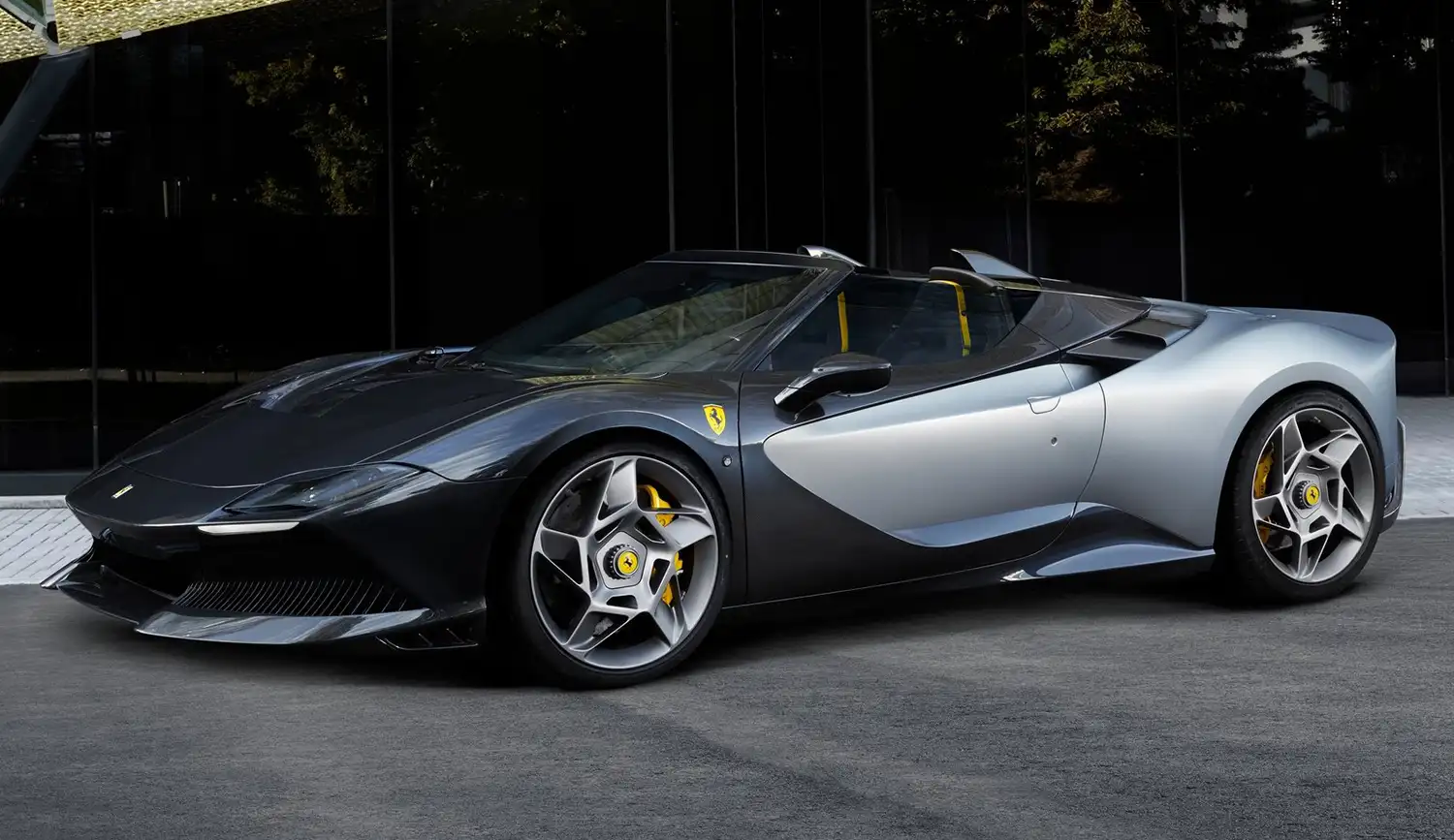
The matte Argento Micalizzato colour created specifically for the SP-8 pairs brilliantly with the car’s carbon-fibre section, which has an equally specific colour and finish (glossy iridescent Blue Sandstone). Even the Blu Scuro Stellato colour used to link the two bodywork sections was specifically developed.

